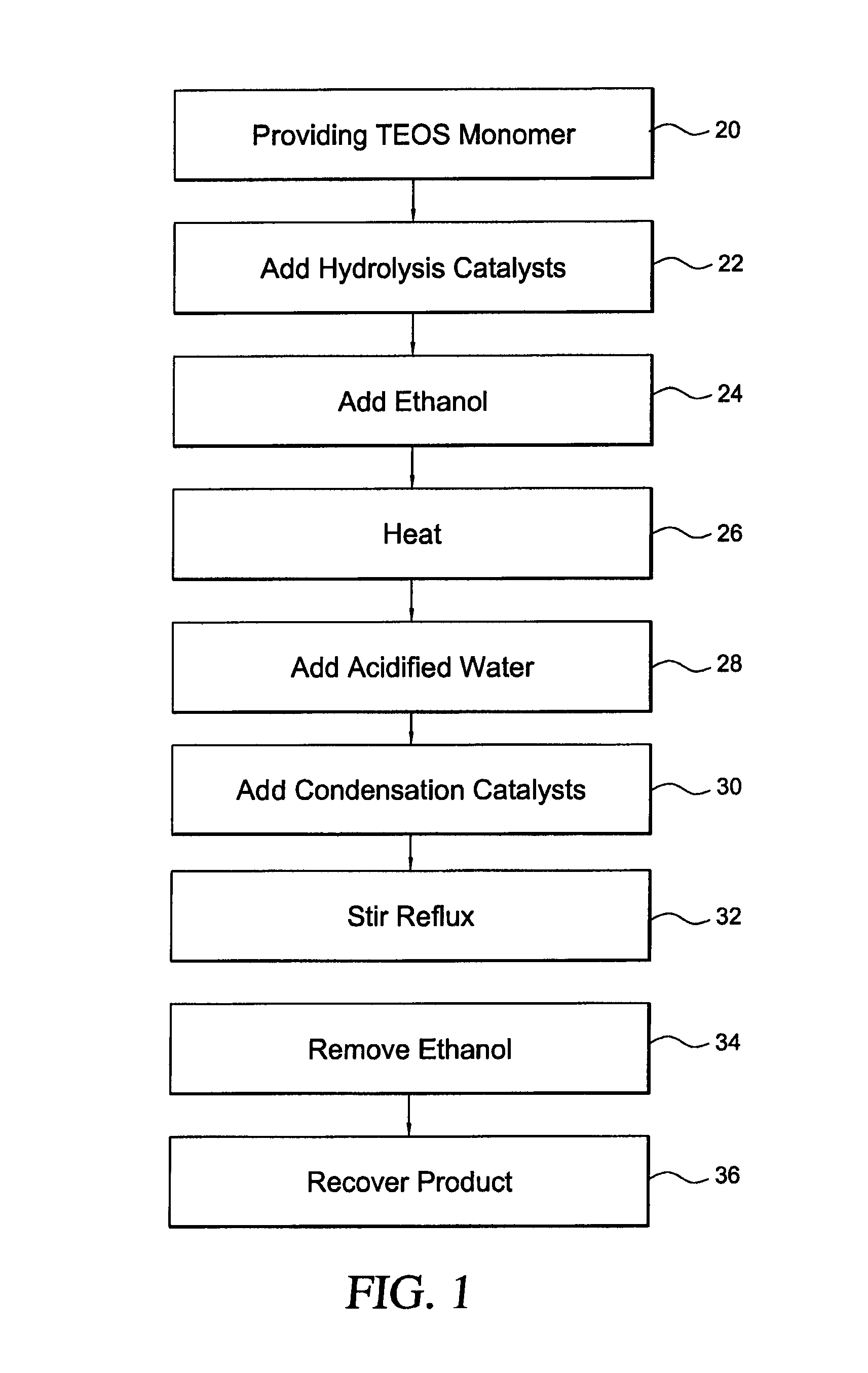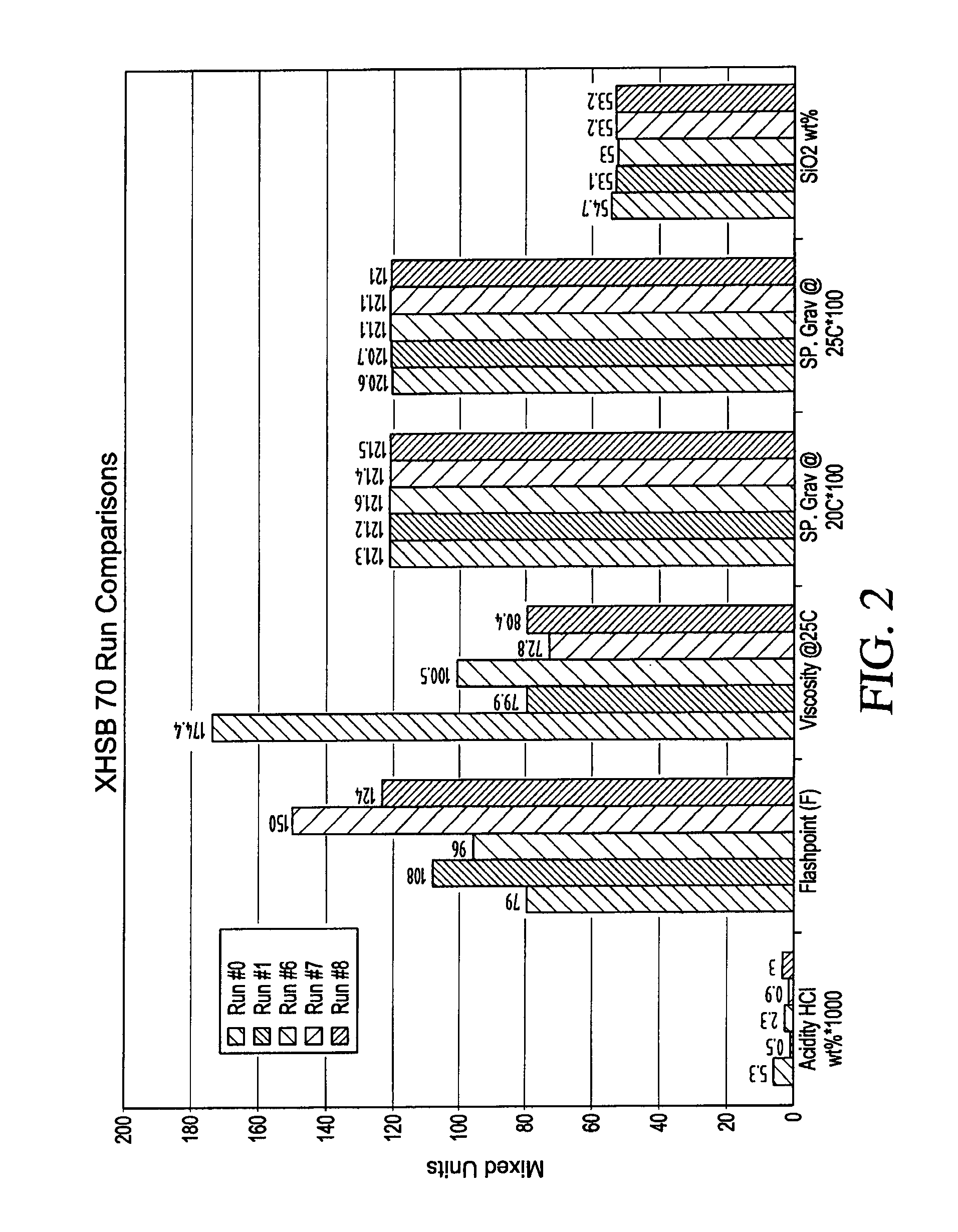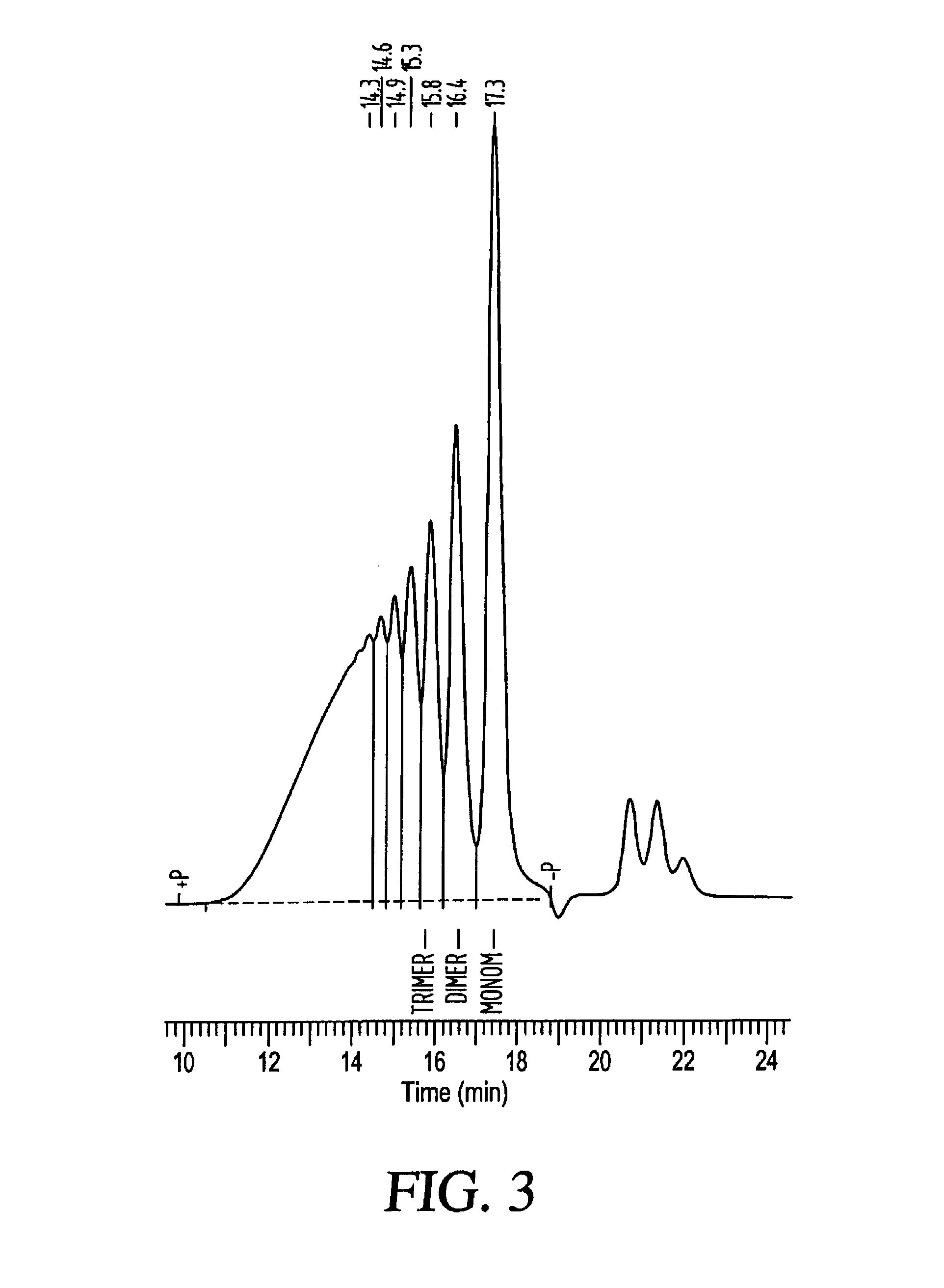MQ resins from stable ethylsilicate polymers
a technology of ethylsilicate polymer and mq resin, which is applied in the field of stable ethylsilicate polymer, can solve the problems of low molecular weight mq resin, low boiler quantity, and increasing complexity of polymers, and achieves the effect of reducing the amount of low boiling alcohol by-product, reducing the number of mq resins, and improving the stability of mq resins
- Summary
- Abstract
- Description
- Claims
- Application Information
AI Technical Summary
Benefits of technology
Problems solved by technology
Method used
Image
Examples
##ventive example 1
INVENTIVE EXAMPLE 1
Production of Ethylsilicate Polymer Using PNC Catalyst
[0061]A 2 liter four necked round bottom flask, equipped with a central stirrer, thermometer, Claisen take off adaptor, and addition funnel, is charged with 780 grams of a condensed TEOS monomer including 28 wt % SiO2, 2 drops of 37% HCl, and 125 grams of 200 proof ethanol. The mixture is heated to 72° C. To this hot stirring mixture is added 94.5 grams of water acidified with 2 drops of 37% HCl over a period of 1 hour. After completion of the addition of acidified water, 0.1 grams of 99% phosphoronitrilic chloride trimer (PNC catalyst) was introduced. The mixture is stirred at reflux for 2 hours and then all ethanol was removed by heating. The temperature of the mixture increased from 80° C. to 140° C. over about 3 hours. Then, 530 grams of volatile material was collected by distillation leaving 443 grams of a clear silicate ester mixture. The clear ethyl polysilicate mixture was stable even after heating at 5...
##ventive example 2
INVENTIVE EXAMPLE 2
Production of Ethylsilicate Polymer Using PNC Catalyst
[0068]A four necked 5 liter round bottom flask, equipped with a central stirrer, thermometer, Claisen take off adaptor, and additional funnel, is charged with 3120 grams of a condensed TEOS monomer including 28 wt % SiO2, 4 grams of PNCl2, a PNC catalyst, prepared in Benzoyl Chloride Solution, and 500 grams of SDA 29 denatured ethyl alcohol. The mixture was heated to 80° C. To this hot stirring mixture was added 378 grams of water. HCl is introduced to the mixture via hydrolysis of the benzoyl chloride when the water is added. The mixture is stirred at reflux for 2 hours and then all ethanol was removed by heating. The temperature of the mixture increased from 80° C. to 140° C. over about 3 hours. Next, 2300 grams of volatile materials were collected by distillation leaving 1690 grams of a clear silicate ester mixture.
##ventive example 3
INVENTIVE EXAMPLE 3
Production of Ethylsilicate Polymer Using PNC Catalyst
[0069]A four necked 5 liter round bottom flask, equipped with a central stirrer, thermometer, Claisen take off adaptor, and addition funnel, is charged with 3120 grams of a condensed TEOS monomer including 28 wt % SiO2, 0.4 grams of methansulfonic sulfonic acid (150 ppm), and 500 grams of SDA 29 denatured alcohol. The mixture is heated to 80° C. To this hot stirring mixture is added 378 grams of water. After completion of the addition of water, 0.4 grams of phosphonitrilic chloride trimer (PNC catalyst) was introduced. The mixture is stirred at reflux for 2 hours and then all ethanol was removed by heating. The temperature of the mixture increased from 80° C. to 140° C. over about 3 hours. Next, 2253 grams of volatile materials was collected by distillation leaving 1704 grams of a clear silicate ester mixture. Five repeated runs gave the data shown in FIG. 7.
PUM
| Property | Measurement | Unit |
|---|---|---|
| wt % | aaaaa | aaaaa |
| wt % | aaaaa | aaaaa |
| molar mass | aaaaa | aaaaa |
Abstract
Description
Claims
Application Information
 Login to View More
Login to View More - R&D
- Intellectual Property
- Life Sciences
- Materials
- Tech Scout
- Unparalleled Data Quality
- Higher Quality Content
- 60% Fewer Hallucinations
Browse by: Latest US Patents, China's latest patents, Technical Efficacy Thesaurus, Application Domain, Technology Topic, Popular Technical Reports.
© 2025 PatSnap. All rights reserved.Legal|Privacy policy|Modern Slavery Act Transparency Statement|Sitemap|About US| Contact US: help@patsnap.com



